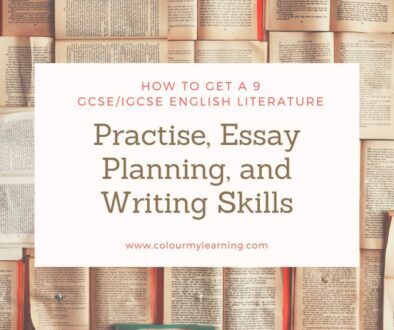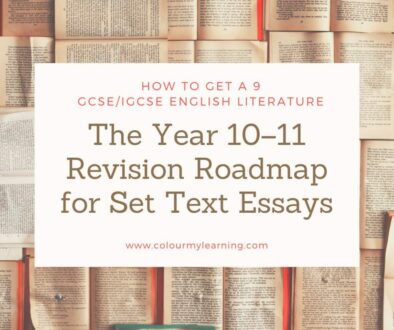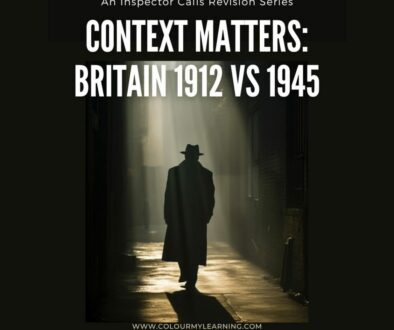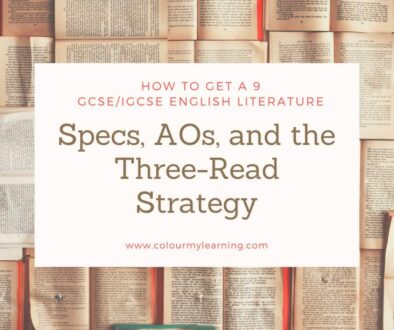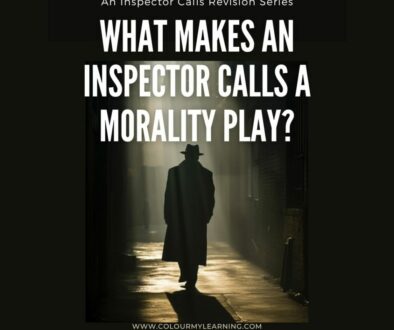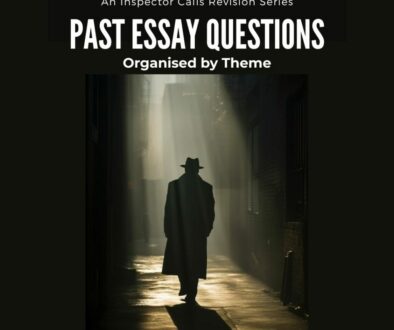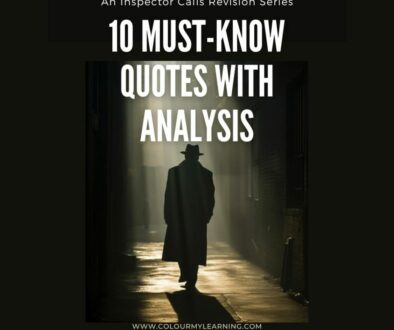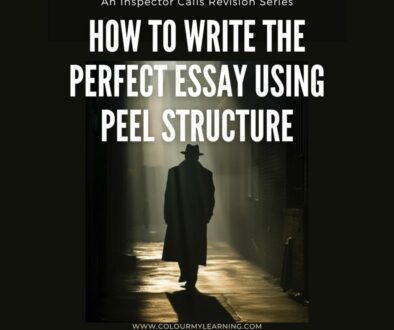Essential Literary and Dramatic Terms for GCSE and IGCSE English Literature Drama Texts
Whatever drama text you’re studying for GCSE or IGCSE English Literature, whether it’s Macbeth, An Inspector Calls, Blood Brothers, or any other text, understanding the technical terminology and being able to accurately use language of drama is essential. To be able to write high-level essays, you need to analyse how playwrights use structure, stagecraft, and language to shape meaning and impact the audience.
This glossary introduces the most important terms used when writing about plays. These concepts are commonly assessed in exams and expected by examiners when you’re analysing characters, themes, and dramatic technique.
Why This Matters
When you are able to refer confidently to dramatic irony, stage directions, or cyclical structure, you’re not just using fancy terminology — you’re showing that you understand how plays are constructed. This is exactly what examiners want to see, especially when assessing your skills in AO2: analysis of language, form, and structure.
Term | Definition |
| Allusion | A brief reference to another text, event, or cultural idea. |
| Climactic Structure | A traditional plot with rising tension, a crisis point, and a resolution. |
| Conflict | A struggle between characters or between a character and an external force. |
| Cyclical Structure | A narrative or plot that ends where it begins, reinforcing repeated lessons. |
| Didactic | A text that teaches a moral or political lesson. |
| Dramatic Irony | When the audience knows more than the characters, creating tension or humour. |
| Entrances and Exits | The timing of characters arriving or leaving the stage to influence events. |
| Exposition | The part of a play that provides necessary background information. |
| Foreshadowing | Hints or clues about events that will occur later in the play. |
| Juxtaposition | The placement of two elements side by side to highlight contrast. |
| Monologue | A long speech by a single character to express their thoughts or emotions. |
| Moral Responsibility | The duty to act ethically and accept the consequences of one’s actions. |
| Motif | A recurring image, symbol, or idea that reinforces a central theme. |
| Protagonist | The main character in the play whose decisions shape the narrative. |
| Repetition | The repeated use of a word or phrase for emphasis or effect. |
| Social Commentary | When a text critiques societal values, injustice, or inequality. |
| Stage Directions | Scripted instructions about movement, setting, and tone given to actors. |
| Subtext | The underlying meaning behind a character’s words or actions. |
| Symbolism | The use of an object, character, or setting to represent a larger idea. |
| Theme | A central idea or message explored in the play. |
| Tone | The attitude or emotional quality conveyed by the writer or a character. |
| Tricolon | A series of three parallel elements used for emphasis or rhythm. |
How to Use This Glossary Effectively
This glossary is designed to help you use literary and dramatic language more confidently in your essays. The terms listed here are often expected in high-level responses and will help you explain how the playwright creates meaning and impact.
1. Identify Techniques in Your Set Text
As you study the play, take note of where these techniques appear. You might annotate your script or keep a list of scenes where certain terms apply. This helps you build a stronger connection between the vocabulary and the text.
2. Create Your Own Flashcards
Write out each term with a definition and match it to a clear example from your play. Use these for revision or quick self-testing. Flashcards help you move terms from recognition to confident use.
3. Use These Terms in Your Essay Writing
In every exam response, aim to include two or more of these terms when you analyse a quote. This shows the examiner that you understand how the writer’s choices affect the meaning of the play.
4. Review the Glossary Regularly
Return to this glossary throughout your revision. Add your own examples or highlight terms you still want to practise using. With time and review, using this vocabulary becomes natural and effective.
What Next?
Understanding these literary and dramatic terms is an important step in becoming a more confident and effective writer. Whether you’re analysing how a character develops, commenting on a key theme, or exploring how structure shapes meaning, having the right vocabulary allows you to express your ideas clearly and accurately.
This glossary gives you the language be able to describe and explain . The next step is learning how to apply it — through thoughtful analysis, structured essays, and exam-focused writing.
If you’re looking for help with planning your paragraphs, building strong arguments, or using techniques like PEEL and PETAL in your responses, take a look at our full revision resources. They’re designed to support you in turning knowledge into confident, well-developed writing.


